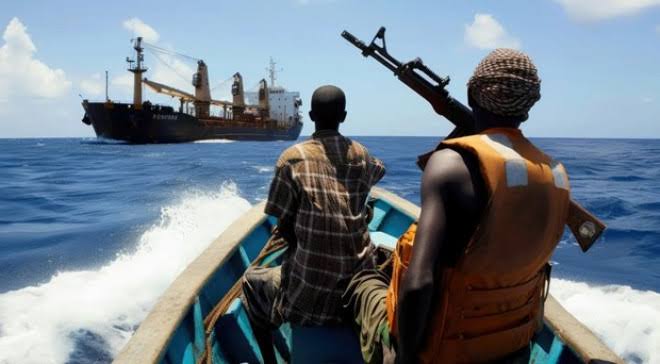Facebook Twitter (X) Instagram Somali Magazine - People's Magazine
A group of Somali men who hijacked a Chinese fishing trawler off the coast of Puntland state have insisted they are not pirates but a community fighting back against illegal fishing practices depleting their coastal resources. The vessel, FV LIAO DONG YU 578, was seized in late November 2024, with the crew taken hostage for seven weeks before being released safely in January 2025.
Liban Hassan, a 32-year-old fisherman from Eyl, was one of the hijackers who spoke with Al Jazeera. He described the capture of the trawler as an act of desperation against foreign fishing vessels encroaching on Somali waters and threatening the livelihoods of local communities. He argued that illegal trawlers were stripping the sea of fish, polluting the waters, and attacking local fishermen who tried to defend their territory.

According to Liban, the Chinese vessel was operating just two miles off the coast, far within Somali waters where trawlers are legally prohibited. Somali law requires foreign vessels to remain at least 24 nautical miles from the shore to protect the coastal fishing zones reserved for local fishermen. Despite these regulations, foreign vessels have frequently been reported violating this boundary.
Liban recounted how his group boarded the vessel in the early hours of November 25, taking control without injury. He claimed the ship’s two armed guards surrendered without resistance when outnumbered by the hijackers. The group allegedly seized weapons and protective gear from the vessel before securing control.
The Chinese embassy in Somalia condemned the hijacking, calling it a “vicious action threatening international navigation security.” However, the hijackers and some Puntland locals argue that the true threat comes from unchecked foreign trawlers damaging their environment and food security.
Illegal fishing in Somali waters has been a significant issue since the collapse of the central government in 1991. With no central authority to enforce maritime laws, foreign vessels began exploiting the rich fishing grounds, often accompanied by environmental damage and clashes with local fishers.
By the early 2010s, Somali piracy had declined due to international naval interventions such as the European Union Naval Force (EUNAVFOR) Operation Atalanta, which targeted piracy in the region. However, locals argue that with piracy suppressed, illegal trawling has surged, leading to renewed tensions.
For weeks leading up to the hijacking, frustrations had been mounting in coastal towns like Garacad and Aluula. Local fishers and elders had raised concerns about the destructive presence of foreign vessels, with allegations of overfishing and pollution causing harm to the local economy.
The hijackers initially refused ransom offers, stating the proposed amounts were insufficient to compensate for the damage caused by the trawlers. However, negotiations eventually led to the vessel’s release on January 13, following discussions between Puntland state authorities, local clan elders, and Chinese diplomats.
Some Puntland residents support the hijackers’ grievances but disagree with their methods. Tribal chief Garad Jama Isse from Garacad warned that while illegal trawling is a major issue, piracy brings even greater harm to the community. He noted the violence and corruption piracy fosters, including alcohol abuse, weapon proliferation, and social decay.
During Somalia’s piracy crisis in the late 2000s, religious leaders condemned piracy for contributing to moral decline and spreading criminal behavior. Jama Isse fears a return to those days, urging communities to resist both the trawlers and the resurgence of armed piracy.
The Chinese vessel involved is part of a fleet owned by the Liaoning Daping Fishery Group. Reports suggest it may have held a license from Puntland authorities, though it was still operating within restricted zones. Somali officials did not respond to inquiries about the vessel’s authorization or the broader issue of illegal licensing.
While Puntland authorities remain silent, local elder Mohamud Khalid Hassan described the ongoing presence of foreign trawlers as an economic and environmental crisis. He accused certain government figures of profiting from granting illegal licenses, further complicating the struggle for justice on the coastline.
Despite the release of the vessel, tensions remain high in Puntland’s coastal regions. Many local fishers feel abandoned, trapped between illegal fishing operations and the risks of piracy. For Liban and his fellow hijackers, their actions were not about personal gain but survival.
“We are not criminals,” he insisted. “We are just trying to feed our families in a world where our seas are being looted before our eyes.”

